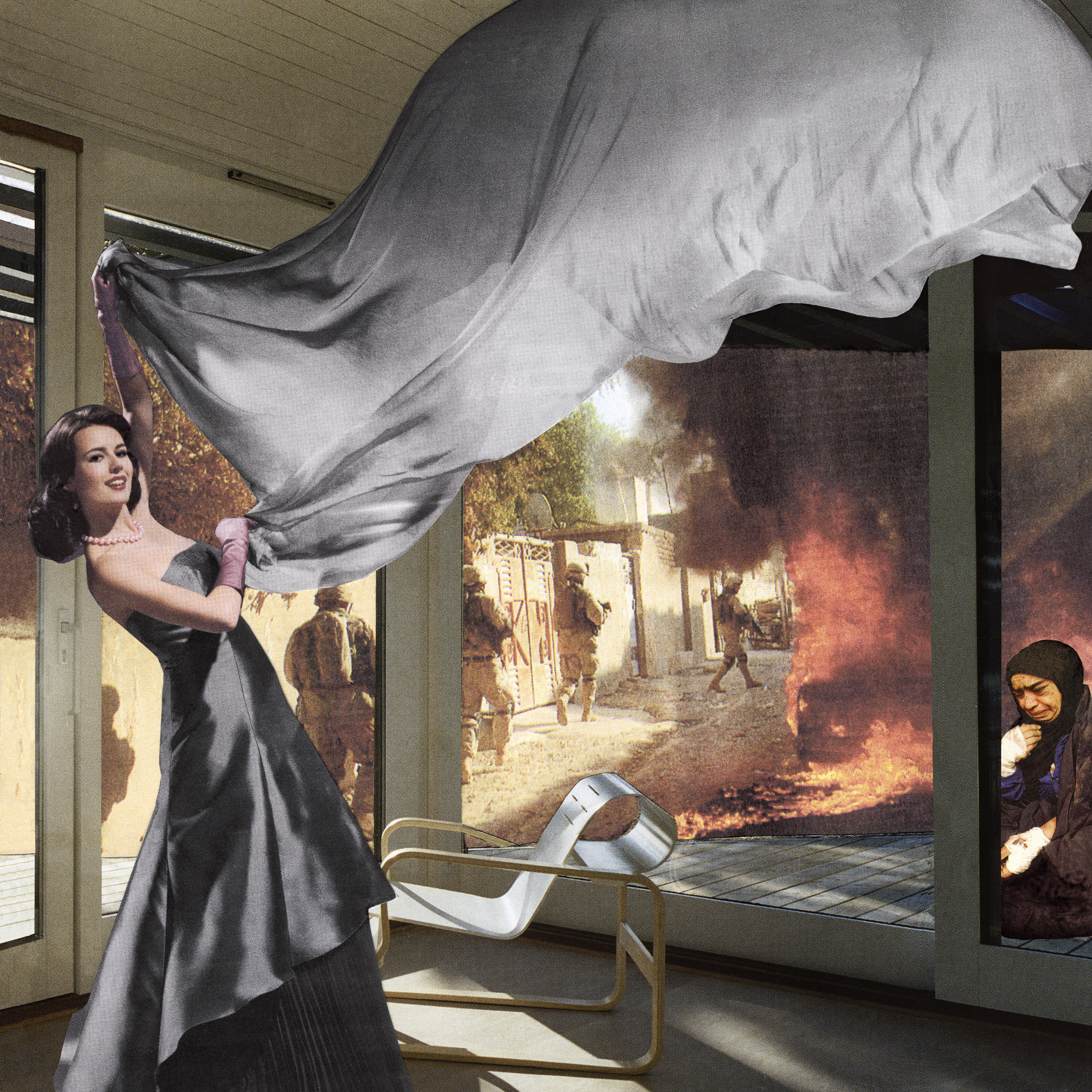You have just publicly endorsed Hillary Clinton on Facebook with a two-thousand word text that you title “Why I Am Voting for Hillary Clinton; The Smell of Napalm the Morning of November 9, 2016.” I feel it necessary to respond to you publicly, because your text is totally reprehensible.
Napalm. Are you crazy?
“I am completely committed to my pragmatist, vengeance-seeking, bad-ass – even Identity Politics vote. I want the smell of napalm in the morning of November 9, 2016 when Hillary beats the Republicans. For good. It will smell like … … victory.”
That you’re “completely committed” is fine. I couldn’t care less; this is a democracy. But that an art critic with your celebrity standing should define himself for his 70,000 followers with such bellicosity, as “vengeance-seeking” — as someone who invites “the smell of napalm” when Hillary beats the Republicans “for good” — this, in my view, calls for a public condemnation. Do you think your pastiche of Robert Duvall’s psychotic character in Apocalypse Now is funny? Napalm is a chemical weapon that clings to the skin to melt off flesh from the human body. The images of its effects that we have seen rank among the most horrific images associated with the Vietnam War. So why you, as a writer, as someone who specializes in words, should elect to express yourself in these terms is, I hope, a matter of public concern.
What’s more, you commented on your text to instruct your 70,000 followers to not come after you personally, to *not* (your emphasis) comment on why Clinton is “wrong or bad or lacks integrity”; you tell people to comment ONLY (your caps) by supporting their candidate. But no — you cannot publish egregious material like this in a public forum and then indemnify yourself — or Clinton — from a public reckoning. It doesn’t work that way.
“My 2016 Clinton vote is 100% pragmatism in real time. Blunt Realism. (With blood politics mixed in.)
I. Want. To. Win. Big. Total. Final.
A Clinton candidacy puts that in our reach.”
First napalm, now blood politics. Why such violence?
When it comes to Bernie Sanders you claim that “America is not prepared to elect a self-defined ‘Socialist.’ C’mon!” you shout, “We have to get at least a little bit real.”
No, Jerry, you have to get a little bit real — first off by dropping the scare quotes. Sanders has identified himself as a “democratic socialist,” as you know — he’s said this time and again. Other notables in this political category include Albert Einstein, Helen Keller, and Dr. Martin Luther King. I assume you also know that Sanders has broken a historical record in this country for the number of individual contributions he has received in support of his bid for presidency. This is an indisputable fact — and what it implies is that “America” — meaning the majority of people, not the millionaires and billionaires — is indeed prepared to elect someone like Sanders. We are fighting against a rigged system of corporate domination for which you, with your saber-rattling endorsement, have become a representative.
It’s interesting that you sanitize your war-mongering belligerence by calling yourself a feminist and associating with poet Eileen Myles, saying that you support Clinton because you just want to see a woman in the White House. Many of us share this desire to see a woman elected President. But it has to be a candidate who stands for the right principles. After all, consider Margaret Thatcher. Did it matter that she was a woman? What we need, and what we need desperately, is someone who’s not beholden to the cabal of corporate lobbyists, someone not affiliated with the likes of Goldman Sachs and Monsanto, someone not embroiled in a cornucopia of conflicts of interest, someone who has integrity and a vision for social and economic justice; we need someone willing to break the stranglehold Wall Street has on the American political system — and for this, Hillary Clinton cannot be our choice.
But my point here is not to discredit Hillary Clinton. My point, rather, is to say to you, Jerry Saltz, that by calling for napalm and blood politics in your endorsement of Hillary Clinton, in this — you have gone too far.
/// Jonathan Thomas is Editor in Chief of The Third Rail.
